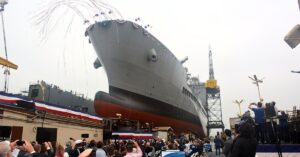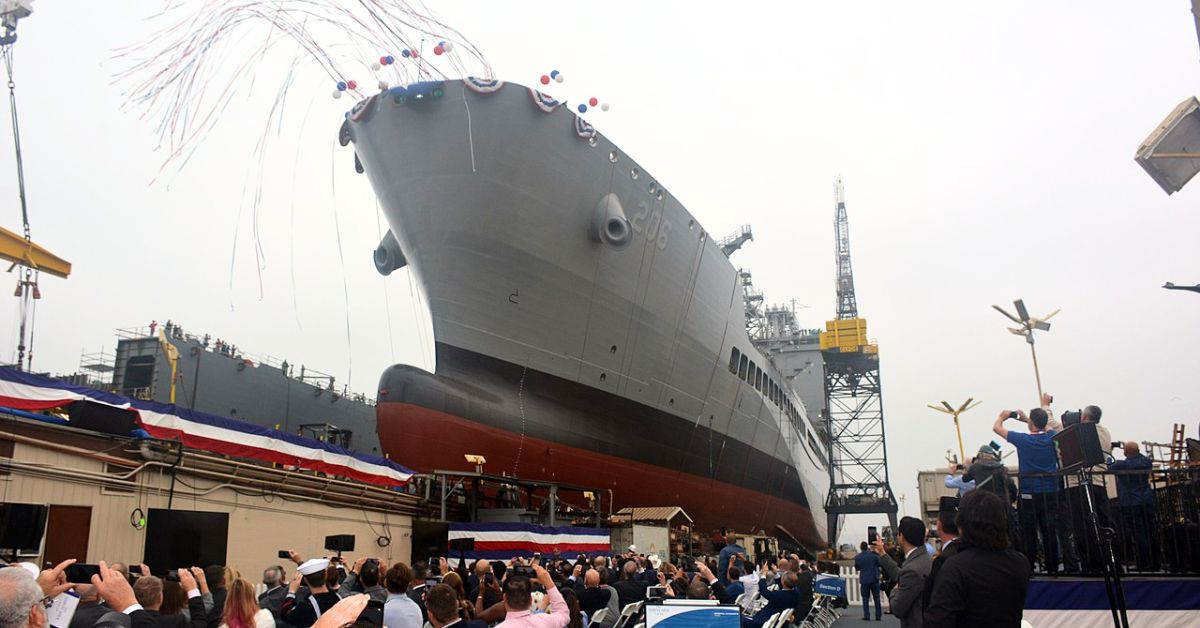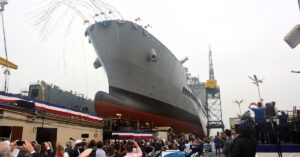
Captain Says Dubai Cartel Threatened To Kill His Family & Forced Him To Sail Cocaine-Laden Ship
June 4, 2025
Newly Released Transcript From Dali Reveals Chilling Moments Before It Hit The Key Bridge
June 4, 2025

The U.S. Navy is set to rename the USNS Harvey Milk, a fleet replenishment ship named after a slain gay rights leader and Navy veteran, after an order from Defence Secretary Pete Hegseth.
The decision, made during Pride Month, has been widely criticised by civil rights advocates and senior lawmakers.
According to Navy documents reviewed by multiple media outlets, Hegseth instructed Navy Secretary John Phelan to initiate the name change as part of a move to “re-establish the warrior culture” across the U.S. military.
Officials familiar with the process said that the renaming announcement is planned for June 13 and may be made aboard the USS Constitution, the world’s oldest commissioned naval warship still afloat.
The Navy has formed a small internal team to select a new name for the USNS Harvey Milk, which is part of the John Lewis-class oilers, ships originally named after civil rights icons.
The Harvey Milk, which began service in late 2024 and is currently undergoing maintenance in Alabama, was christened in 2021 and is intended to honour LGBTQ+ service members.
A Pentagon spokesperson said Hegseth’s order supports the Commander-in-Chief’s priorities and the military’s focus on strength, unity, and traditional values. The spokesperson added that renaming decisions will be made after internal reviews are done.
Former House Speaker Nancy Pelosi called it a “shameful, vindictive erasure” of Milk’s legacy. She said such actions undermine American values and do not enhance national security or military unity.
Senate Minority Leader Chuck Schumer urged the administration to reverse the decision, while House Minority Leader Hakeem Jeffries described the move as “an utter abomination” that tries to erase American history.
Harvey Milk served as a Navy diving officer aboard submarine rescue ships during the Korean War. He was discharged in 1955 with an “Other Than Honorable” status after being questioned about his sexual orientation.
Decades later, he became one of the first openly gay elected officials in the U.S. and was assassinated in 1978 after passing landmark anti-discrimination legislation in San Francisco. In 2009, Milk was posthumously awarded the Presidential Medal of Freedom.
The USNS Harvey Milk was named in 2016 by then-Navy Secretary Ray Mabus. Milk’s family, with a long record of military service, approved the tribute. His nephew, Stuart Milk, declined the Navy’s offer to upgrade Harvey’s discharge in 2021 to preserve the historical record of discrimination against LGBTQ service members.
Renaming a ship after it has been christened and entered service is rare and traditionally frowned upon in naval culture. Naval folklore even considers it “bad luck” to change a ship’s name once at sea.
However, some exceptions exist. In 2023, the Navy renamed two ships, USS Chancellorsville and USNS Maury, that were previously linked to the Confederacy. Those changes were based on recommendations by a bipartisan commission established by Congress, unlike the current action, which was directly ordered by Hegseth.
The USNS Harvey Milk is not the only ship under review. Internal documents obtained by CBS News show that other John Lewis-class oilers could also be renamed. These include ships named after U.S. Supreme Court Justices Thurgood Marshall and Ruth Bader Ginsburg, abolitionist Harriet Tubman, labour leaders Dolores Huerta and Cesar Chavez, civil rights activist Medgar Evers, and suffragist Lucy Stone. Some of these ships have not yet been completed.
The Navy also removed a web page about the keel laying of the future USNS Thurgood Marshall, raising concerns that more names might soon disappear. These removals are made to limit diversity, equity, and inclusion (DEI) initiatives in federal agencies, including the military.
Earlier this year, Hegseth issued a directive titled “Identity Months Dead at DoD,” which barred the use of manpower or resources to celebrate events such as Pride Month, Black History Month, and Women’s History Month, saying they threaten unity among military personnel.
Additionally, President Trump signed executive orders making it official U.S. policy to recognise only two sexes, male and female, and banning DEI programs across the federal government.
Supporters say these programs help address systemic discrimination, but critics believe they create division.
References: cbsnews, military.com
Source: Maritime Shipping News


